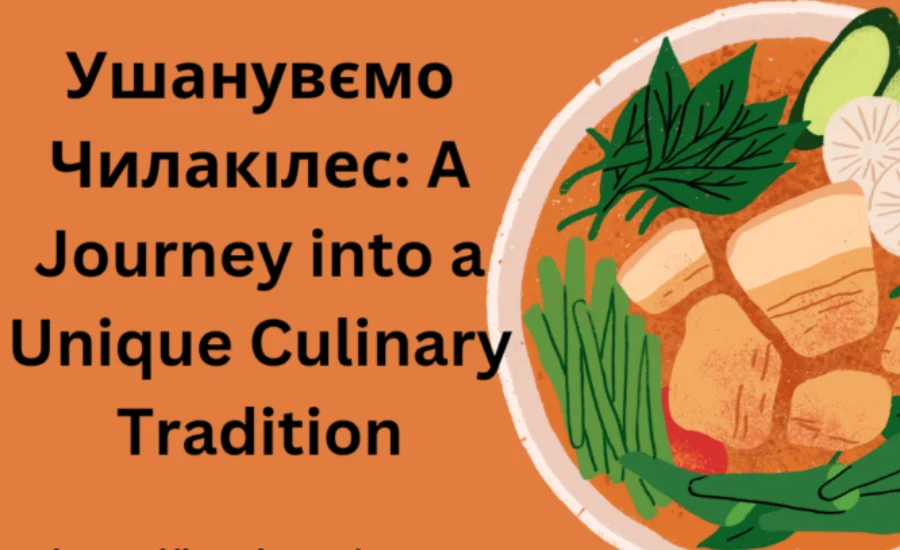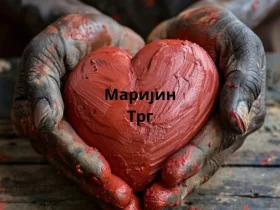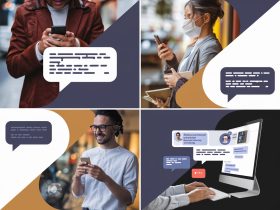Fordaító; Translators play an irreplaceable role in a globalized society that we live in today. Translators are the key players, acting like bridges to keep verbal ice-breakers under loose ends. They can dub materials for a multitude of markets, breaking down the language barrier that often obstructs subjects from being understood. Taking a closer look, this blog post explores the wonderful world of translation: its long journey through history; how wide-ranging transcreation and other forms of our services have been squeezed into just one box called ‘translation’; what makes each translator so unavoidably important – among many other exciting things.
The Evolution of Fordaító
The introduction of Artificial intelligence and Machine Learning is paving a new way for the translations to happen at an unprecedented pace. Such technological developments have in turn led to automation of translation processes which can be applied effectively, particularly with high volume text. But human translators are still indispensable for tasks that require a more nuanced understanding and advanced interpretations — where the subtleties of tone, cultural context or delicate shades inevitably come into play.
Real-time translation technology is making communication a breeze across different languages. Taking conversations to a level of being instantly translated, it blurs language divides and leads to smoother engagement in different global contexts.
Although the fast technological development, human translators are indispensable still. With the ability to grasp cultural subtext, translate content correctly yet appropriately in context and be exact even with complicated texts like legal translations or creative literature. However, human translators bring an understanding and empathy that machines lack: they work diligently to create high-quality translations with context and nuance so marketing messages resonate in the desired fashion across multiple languages.
Fordaító -Translation

The most skillful translator is one who has an excellent command of the source language, as well as a full appreciation for both subtleties within that system and possible differences between each culture. They have to truly understand the topic being written about as well and know how cultural distinctions affect language. Translators usually depend on Computer-Assisted Translation (CAT) tools to provide accuracy and consistency, for instance: SDL Trados, MemoQ. Normally translation encompasses the following cycle: analysis of the source text, translating, editing and proofreading. Often you will work closely with other translators and subject matter experts, ensuring the deliverable is accurate to a tee.
Benefits of Professional Fordaító Services
Professional translators like Fordaító provide precise and high-quality translations that ensure the intended message is communicated effectively. They adeptly handle cultural nuances, making sure the translated content resonates with the target audience and remains contextually appropriate. In specialized areas such as legal and medical translation, professional services ensure compliance with local laws and regulations, maintaining both accuracy and legality. Additionally, professional translators adhere to industry standards and ethical practices, offering reliable and confidential services that clients can depend on.
Myths About Fordaító
Translation involves converting written text accurately and effectively into another language, while interpretation deals with spoken language, requiring real-time translation during conversations or events. Both disciplines require distinct skill sets and approaches to ensure accurate communication across languages.
A common misconception is that fluency in a language equates to translation proficiency. Effective Fordaító requires specific knowledge and training in grammar, syntax, cultural nuances, and context. Professional translators undergo rigorous education and continuous learning to hone their skills, ensuring translations accurately reflect the source text in all its facets.
Translation Across Various Industries
In business and marketing, accurate translation is essential for global campaigns to engage diverse audiences. It ensures that brand messages are understood across different languages and cultural contexts, helping companies build strong relationships with customers and expand their global market presence.
In healthcare, accurate translation is crucial for patient care. It ensures that patients receive accurate medical information, treatment instructions, and healthcare advice in their native language, enabling them to understand and follow medical guidance, thus improving healthcare outcomes.
Legal and governmental translation requires a deep understanding of legal terminology and processes. It ensures compliance with local laws, accurate interpretation of legal documents, and effective communication between legal systems and government agencies across borders. This clarity is vital for maintaining legal integrity and facilitating international cooperation.
In education, translation makes learning materials accessible globally. It ensures that textbooks, research papers, and educational resources are available in multiple languages, promoting inclusivity and enabling students worldwide to access quality education. This exchange of knowledge across languages enriches educational experiences and fosters global understanding and collaboration in academia.
Fordaító Service Options
Literary Translation : Translating of poetic novels, poems & plays. This kind of work requires not just linguistic skills but also almost an expertise in poetry, because it helps to keep as much emotion and spirit from the original with some style tricks.
First of all, Technical Translation is a type of translation that focuses on technical documents such as manuals, user guides and material in the field of either engineering or IT. This also needs to be done accurately because the information is a very complex technical.
Legal Fordaító: Legal translation covers the document translations of contracts, treaties and legal proceedings. Translation of legal documents such as patent, contract or civil status acts is a highly specialised field that requires an excellent knowledge of the laws and all possible aspects with respect to each language combination so it is necessary that these are then translated professionally in order to avoid any difficulty when reproducing them thoroughly.
Medical Translation This involves translating medical texts like research articles, patient records and prescription information. Knowing exactly what the other person is communicating with medical terminology, and abiding by confidentiality protocols in order to provide life saving information are crucial highlights of this pathway.
Unlike mere translation, Website Localization involves modifying content within a website itself to conform with the unique linguistic and cultural aspects of certain markets. This makes sure the website is not just accurate in language, but also culturally perfect as per how users would expect it to be (more on that later).
Fordaító Service Options

Literary translation: It is used for the novels, poems and plays etc. Besides a good command over the language, it also needs to familitarise with literary devices and cultural themes in order to retain the ethos or/and pathos ofthe original.
Technical Translation: The name itself is explanatory; this type of translation includes translating such writings as manuals, user guides and texts in the field of engineering or IT. (Ensuring that the complexity of the technical information in this domain simpler to be communicated as accurately)
Legal Translation: Without a doubt, legal translation is the most challenging type of all; it involves any kind of texts warming to law, court procedures and contracts. The user provides expansive knowledge of legal terms and practices to make sure translated documents are exact and legally reliable.
Medical Translation -A translation of medical texts that patients paste to read a report and instructions for tablets. Because, the transfer of crucial healthcare information and understanding of terminologies must be free from error that needs a profound knowledge in medical terms as well as observance with privacy protocols.
Challenges in Fordaító
One of the biggest challenges in translation is accurately conveying cultural nuances. Idioms, humor, and cultural references can be difficult to translate without losing their original meaning or intent.
Idiomatic expressions present another hurdle, as they often don’t have direct translations. Translators must creatively adapt these expressions to preserve their essence and intended message in the target language.
Technical jargon, especially in specialized fields like medicine or law, adds another layer of complexity. Precise translation is essential to avoid misunderstandings and ensure accuracy.
Balancing accuracy and faithfulness to the original text while ensuring clarity in the target language demands skill and meticulous attention throughout the translation process.
Professional translation services offer several advantages, including high-quality and precise translations. They adeptly navigate cultural nuances to ensure that translated content resonates appropriately with the audience. In fields like law and medicine, these services ensure compliance with local regulations, providing reliable and confidential translations that adhere to industry standards and ethical guidelines.
Localization of Website: It is more than just translating a website; it means adapting the content and digital experience to align with the local language culture. This guarantees not only language-specific accuracy but also linguistic normatives at a later site, provided in the expandable menu (in different territories), more readable and understandable English for users from various regions.
Commonly Used Translation Software
Machine Translation Engines
Machine translation engines, such as Google Translate and Fordaító, offer instant translations but often lack the nuanced understanding and accuracy of human translators. While they are useful for quick references, human intervention is essential for translating complex or sensitive content to ensure accuracy and context-appropriate translations.
Computer-Assisted Translation (CAT) Tools
CAT tools like SDL Trados and MemoQ are vital for organizing and improving translation workflows. These tools store translated segments for future use, ensuring efficiency and consistency, which boosts productivity and maintains high-quality standards.
Dictionary and Thesaurus Resources
Access to dictionary and thesaurus resources is crucial for translators to find precise definitions, synonyms, and contextual examples. These tools help in selecting the most accurate and appropriate terms and idioms, resulting in polished and contextually relevant translations.
Machine Fordaító vs. Human Fordaító

Machine Fordaító offers speed and affordability, making it a valuable tool for quickly processing large amounts of text and grasping the main ideas of a document. However, it often misses finer details, tones, and cultural nuances, which are crucial for high-stakes translations where precision is essential.
Human translators excel in accuracy and sensitivity, adeptly handling nuances, tone, and cultural context. They ensure the translated content resonates with the intended audience and conveys the message accurately.
Choosing between machine and human translation depends on the task’s specific needs. Machine translation is useful for routine and straightforward tasks where a basic understanding is sufficient. In contrast, human translation is vital for complex and nuanced work, such as legal documents, marketing materials, or literary texts, where accuracy and cultural adaptation are critical. For important documents requiring a deep understanding of language and context, human translators provide the expertise needed to deliver high-quality translations that meet professional standards and client expectations.
Final Words
Fordaító is not merely about converting words from one language to another; it is a bridge that connects cultures, facilitates global communication, and preserves knowledge across generations. In today’s diverse and interconnected world, the role of translators is more crucial than ever. They navigate linguistic nuances, cultural contexts, and technical complexities to ensure accurate and meaningful communication.
From ancient times to modern advancements in AI and machine learning, Fordaító has evolved significantly. While technology has streamlined processes and expanded accessibility through machine translation tools, human translators bring irreplaceable skills of empathy, cultural understanding, and nuanced interpretation that machines cannot replicate.
In fields ranging from legal and medical to business and literature, accurate translation is essential for clarity, compliance, and effective communication. It supports international collaborations, enhances educational access, and fosters global understanding.
Facts:
- Ancient Origins: Fordaító dates back thousands of years, with early examples found in ancient Mesopotamia and Egypt.
- Global Impact: Over 7,000 languages are spoken worldwide, highlighting the immense need for translation services.
- Machine Translation: Advances in AI and machine learning have revolutionized translation, improving speed and accessibility.
- Human Touch: Despite technology, human translators remain crucial for nuanced understanding and cultural adaptation.
- Industry Diversity: Translation spans various sectors, including legal, medical, business, and literature.
- Accuracy Challenges: Translating idioms, humor, and technical jargon accurately poses significant challenges.
- Educational Role: Translation enhances global education by making learning materials accessible across languages.
- Legal Importance: In legal contexts, precise translation is essential for compliance and effective communication.
- Healthcare Support: Accurate medical translation ensures patients receive vital healthcare information in their language.
- Cultural Preservation: Translation preserves and shares cultural heritage and literary works globally.
FAQs:
Q: How does machine translation differ from human translation?
A: Machine translation uses algorithms for fast, automated translations, while human translation involves nuanced understanding and cultural adaptation.
Q: What are the challenges in translating technical documents?
A: Technical translation requires precision to convey complex information accurately across languages without losing technical integrity.
Q: Why is cultural competence important in translation?
A: Cultural competence ensures that translations resonate appropriately with the target audience, considering cultural nuances and context.
Q: What role do translators play in legal contexts?
A: Translators ensure accurate interpretation of legal documents to maintain legal integrity and facilitate international legal processes.
Q: How can translation impact global business and marketing?
A: Translation helps businesses reach diverse markets by ensuring their messages are clear, culturally relevant, and effective.
Q: How has technology influenced the translation industry?
A: Technology has sped up translation processes and improved accessibility, though human translators remain crucial for quality and accuracy.
Q: What qualifications do professional translators have?
A: Professional translators typically undergo rigorous training, possess language expertise, and often specialize in specific fields like law or medicine.
Q: How does translation support global communication and understanding?
A: Translation fosters cross-cultural communication, promotes understanding, and facilitates collaboration on a global scale.
Q: What are the ethical considerations in translation?
A: Ethical translation practices include confidentiality, accuracy, cultural sensitivity, and respecting the integrity of the source text.
Q: How can businesses choose the right translation service provider?
A: Businesses should consider factors like expertise, industry experience, quality assurance processes, and client reviews when selecting a translation service provider.
For more information and if you want tot read more intresting articles join us on Discover Thrill









Leave a Reply
View Comments